By Micaela Burrow, The Daily Caller News Foundation
Administrators and a cadet at the Air Force Academy think a new program focused on informing cadets what the oath to uphold the Constitution means for members of the military will help combat trends in politicization and partisanship among military officials.
The project aims to instill a “democracy ethos” in emerging Air Force officers as politicization and partisanship in the active duty force and among veterans has colored Americans’ view of the military, according to an article published in War on the Rocks Tuesday.
RENEWING DEMOCRACY THROUGH OATH EDUCATION AT THE AIR FORCE ACADEMY (War on the Rocks)
By Marybeth Ulrich, Lynne Chandler Garcia and Sydney Fitch
STARRS NOTE: Air Force Academy Professor Lynne Garcia wrote an op-ed in the Washington Post in 2021 saying she teaches Critical Race Theory to cadets. See US Air Force Academy professor defends teaching critical race theory (NY Post)
One way to prevent future apparent lapses in military-civil distinctions is to address the lack of education among emerging members of the armed forces on why members of the military should refrain from seeking to sway policy and avoid partisan behavior, the authors argue.
“We took the oath of office on our first day at [the U.S. Air Force], but no one explained it to us,” a graduating senior involved in founding the Academy Oath Project told authors Marybeth Ulrich, faculty adviser for the Academy Oath Project; Lynne Chandler Garcia, a member of the faculty advisory board; and Sydney Fitch, the cadet leading the project.
A group of 13 Air Force cadets who enrolled in an elective civics class at the academy two years ago raised concerns about their inability to describe what their oath meant in practice, according to the authors.
Only a handful of cadets take the elective, while a core class for all sophomores, titled “Introduction to American Government and National Security,” contains just five lessons on constitutional foundations and civilian control of the military.
“A few lessons in one course are not enough to lay the foundation needed to develop the professional ethos needed to uphold their oath at difficult decision points in their career when civil-military relations norms will be challenged,” the authors warn.
Everyone who joins the military swears an oath to defend the U.S. Constitution throughout the entirety of their career.
However, a majority of Americans, both Republicans and Democrats, have lost faith in the military in large part due to perceived politicization, where leaders step outside the bounds of their mandate and take a public stance on policy issues, according to a poll conducted in November by the Reagan Foundation.
A politicized military “exercises loyalty to a single political party and/or consistently advocates for and defends partisan political positions and fortunes,” according to Alice Fried, an expert at the Center for Strategic and International Studies.
Active duty officials are participating in political acts more often than normal, according to Kori Schake, a fellow at the Hoover Institution.
For example, Chairman of the Joint Chiefs of Staff Gen. Mark Milley faced criticism for appearing in uniform with former President Donald Trump at Lafayette Square in 2020 after the park was cleared of Black Lives Matter protesters, and for acting or weighing in on topics outside his purview, like critical race theory, before Congress.
While advocating for the overhaul of the existing Air Force Academy curriculum to include more civic education, a group of cadets and one faculty member started the Oath Project as a student-led initiative aimed at creating a better understanding of the oath among cadets, according to the authors.
Activities include student-led lessons on the history of the oath, its importance for preserving U.S. democracy and what it means for members of the military to uphold the oath in different aspects of their lives.
“A strong background in civil-military relations helps officers understand why military leadership is subordinate to civilian leadership when faced with following orders and making decisions in morally complex situations,” the authors wrote.
Meanwhile, the Air Force Academy has itself fallen under fire from conservatives and GOP lawmakers for a version of politicization that focuses on Diversity, Equity and Inclusion (DEI) policies.
A September letter from Republican Sen. Tom Cotton of Arkansas took issue with mandatory DEI classes and instruction to avoid using terms such as “mom” and “dad,” which Cotton said demonstrated an “alarming lack of focus” at the academy.
“The Air Force Academy ought to teach future airmen to revere our nation’s traditions and values, not to have contempt for them,” Cotton said.
The Air Force’s Equal Opportunity office recommended “Behavioral Science 362, Class, Race, Gender, and Sexuality” as a core class, according to an Air Force Academy internal racial disparity review obtained by Judicial Watch in March.
In a hearing last month, senior enlisted leaders pushed back at GOP accusations that DEI initiatives contributed to politicization.
“I think the narrative that we are focused on that more than warfighting is what’s perhaps hurting us,” Air Force Chief Master Sgt. Joanne S. Bass said.


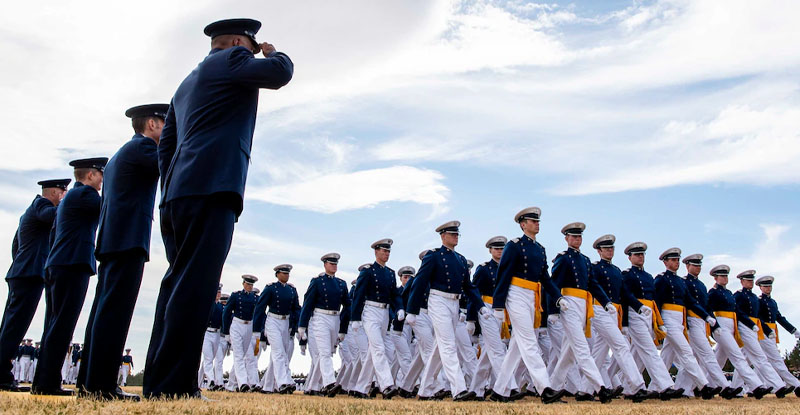
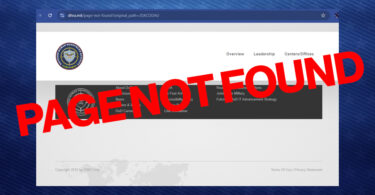

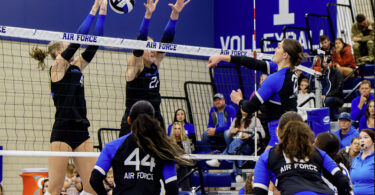
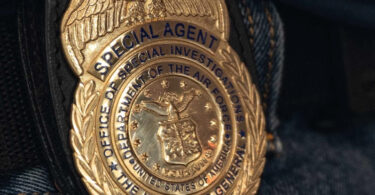
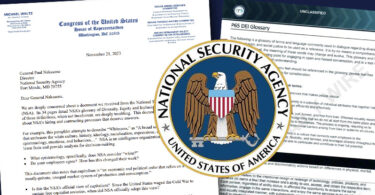
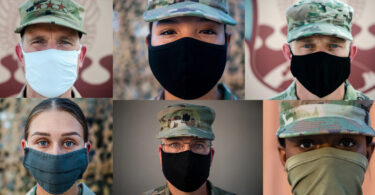
Leave a Comment